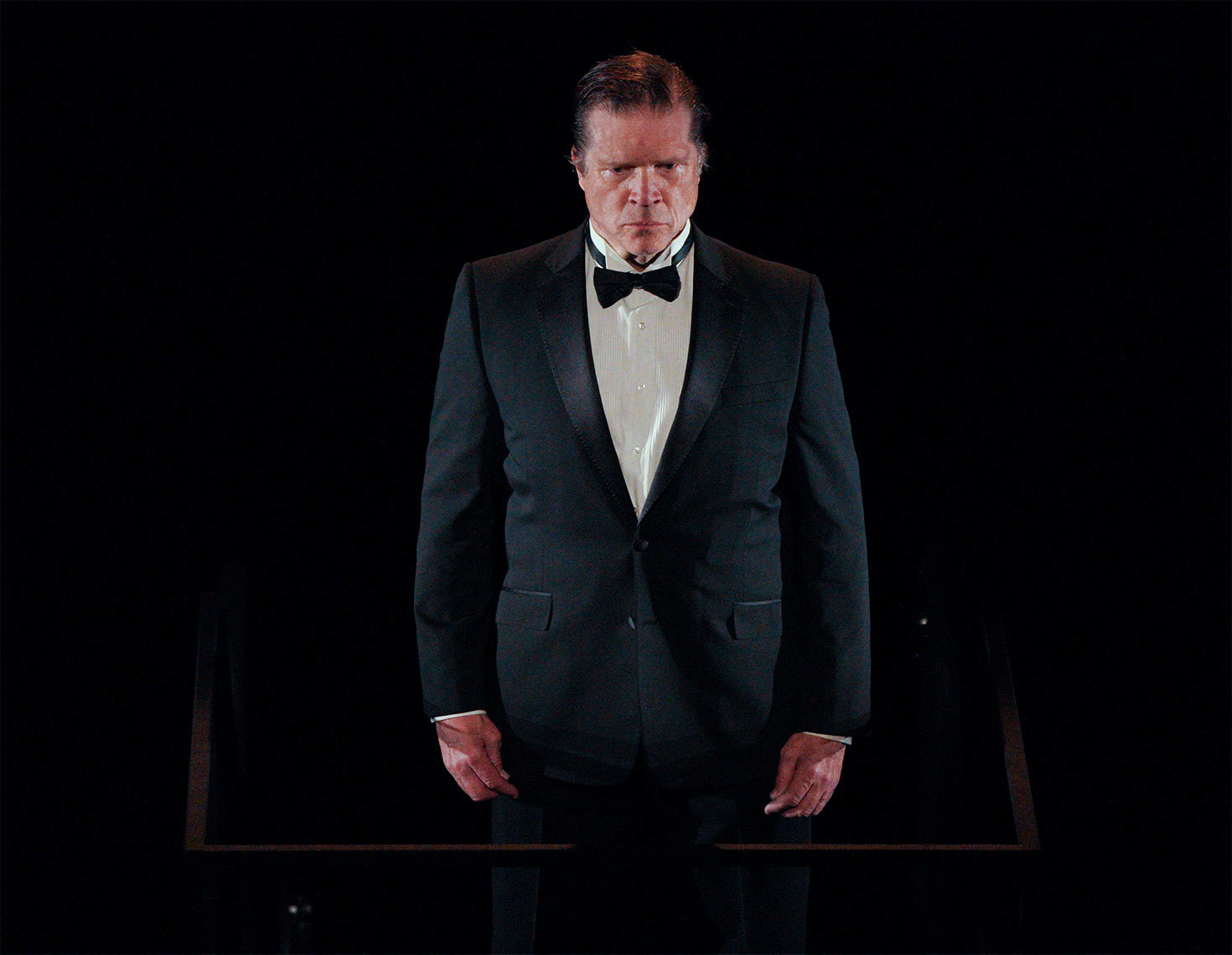Review: THE LOSER at Theatre At Ace Hotel
 On February 22, 2019, Los Angeles Opera presented David Lang's one-man opera, THE LOSER. Lang, who won the 2008 Pulitzer Prize for his LITTLE MATCH GIRL PASSION, not only wrote the music, he also fashioned the English libretto after the 1983 German novel by Thomas Bernhard. For its 2016 premiere at the Brooklyn Academy Of Music, he staged this Spartan, unadorned production by Bang on a Can. One of his more unusual ideas involved sending the entire audience to the mezzanine, thus leaving the lower floor to the chamber musicians.
On February 22, 2019, Los Angeles Opera presented David Lang's one-man opera, THE LOSER. Lang, who won the 2008 Pulitzer Prize for his LITTLE MATCH GIRL PASSION, not only wrote the music, he also fashioned the English libretto after the 1983 German novel by Thomas Bernhard. For its 2016 premiere at the Brooklyn Academy Of Music, he staged this Spartan, unadorned production by Bang on a Can. One of his more unusual ideas involved sending the entire audience to the mezzanine, thus leaving the lower floor to the chamber musicians.
When the lights went down, however, all seemed right for the occasion. The Narrator stood on a platform at mezzanine level while conductor Leslie Leighton led an ensemble consisting of violist Isabel Hagen, cellist Mariel Roberts, double bassist Pat Swoboda, and percussionist Owen Weaver as they played from the dark reaches below. Concert Pianist Conrad Tao performed on the stage and was lighted for some scenes later in the opera. Jennifer Tipton's lighting design added considerable visual interest to this show.
Rod Gilfry was the storyteller and his resonant voice flowed voluminously across to the balcony of the Theatre at Ace Hotel in waves of bronze-tinged tone. Since he sang his monologue with excellent English diction, there was no need for titles.
For all its visual plainness, THE LOSER is a fascinating musical work that tells the fictionalized story of three pianists who are said to have studied with Horowitz: Glenn Gould, Wertheimer, and the philosophically-minded Narrator. Since Gould was the best pianist, the other two thought of themselves as losers. They stopped practicing or playing and gave away their valuable pianos. I wondered how many of my fellow audience members had done something similar. I knew I had. I also knew that losing musicians often made avid music lovers who demanded and appreciated optimum performance from the winners.
THE LOSER, in which Wertheimer commits suicide, is not the first of David Lang's operas to be performed at LA Opera. In June of 2016 the company premiered a much more gruesome Lang work dealing with death, ANATOMY THEATRE, at a more modern but significantly smaller hall called REDCAT. This time LAO knew it needed more seating capacity.
Lang's style of musical presentation made me think of Baroque religious works where the narrator tells the tale for a time and then stops to meditate on its meaning. Lang's libretto presented the tale in eight scenes, each of which detailed the Narrator's obsession with the idea that only the best pianist matters. This "all or nothing" philosophy, often cited by Mercedes Benz, illustrates the destructive power of art when it proposes the idea that if only one pianist can be the best, only that artist's music has value. It may have been an ego problem for the Narrator and Wertheimer. As Birgit Nilsson once said, those who cannot forget themselves in the moment when they are creating art, are not artists.
Lang has the Narrator sing Bernhard's rhythmic repetition of words like "I thought" to begin or end various phrases such as: "I thought in the inn. When we meet the very best, we have to give up, I thought." He also indulged in a bit of humor that brought needed relief to some of the longer scenes. THE LOSER is a serious opera that asks important questions couched in an hour of lyrically enhanced arioso occasionally decorated by instrumental virtuosity.
For Baritone Rod Gilfry as the Narrator, the opera was a solid hour of almost unbroken singing, which he handled magnificently with exquisite vocalism that never seemed to tire. His ability to communicate the austere beauty of Lang's unvarnished music secured our awareness of the Narrator's sad state of disappointment.
THE LOSER is an important addition to both opera and the concert repertoire since it can be performed easily by a small opera company or an orchestra with one vocal soloist. I think it will be making the rounds of regional companies over the next few years. It's an interesting work. Don't miss it if it comes to your area.
Photo by Larry Ho for LA Opera.
Add Your Comment
Videos
